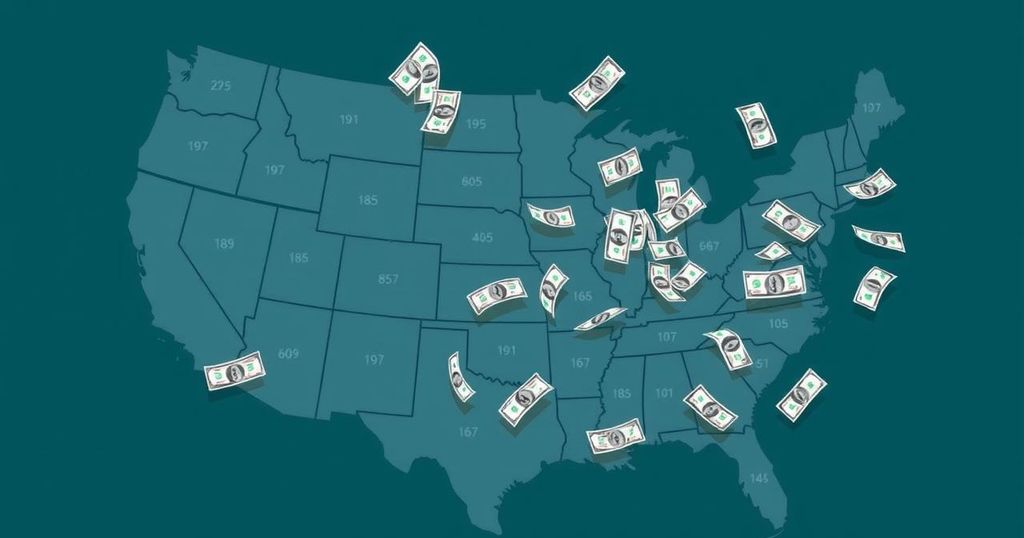Legal Implications of Elon Musk’s Cash Giveaway Ahead of U.S. Elections
Legal experts are raising concerns about Elon Musk’s plan to give $1 million per day until the U.S. elections, suggesting it may violate laws against using cash to induce voting. Pennsylvania Governor Josh Shapiro has expressed alarm over the implications of this scheme, which requires participants to be registered voters. Musk’s America PAC has pledged substantial financial support for Donald Trump’s campaign, further complicating the legality of his cash giveaway as the election approaches.
Elon Musk’s announcement of a plan to distribute $1 million daily until the upcoming U.S. elections has sparked significant legal inquiries. Experts caution that this initiative may contravene laws that prohibit the use of cash or incentives to influence voter behavior. Pennsylvania Governor Josh Shapiro expressed his alarm regarding this approach, suggesting that law enforcement could scrutinize Musk’s actions more closely as they raise “serious questions” about the integrity of political donations and voter inducement. Through his America PAC, which supports former President Donald Trump, Musk has pledged a total of $75 million to assist in the campaign against Democratic candidate Vice President Kamala Harris. At a recent event in Harrisburg, Pennsylvania, Musk’s PAC provided a $1 million check to a participant, reinforcing his support for Trump and his political agenda. Although Musk has a right to endorse his preferred candidates, critics like Governor Shapiro argue that the significant funds flowing into politics necessitate careful examination due to potential legal ramifications. Legal scholars have voiced their concerns particularly about the stipulations tied to Musk’s giveaway; namely, that recipients must be registered voters and must sign a petition in favor of the First and Second Amendments. Such conditions risk breaching federal laws that prohibit payments that could be construed as inducing individuals to register or vote. According to Rick Hasen, a law professor at UCLA, this scheme raises clear legal issues, categorizing it as a potential violation of election laws that aim to ensure free and fair voting. Campaign finance attorney Brendan Fischer further elaborated on the precarious legality of Musk’s offer, analyzing that the requirement for petition signers to be registered voters crosses a legal threshold. The urgency of the election approaching adds another layer that suggests this could be construed as an attempt to incentivize voter registration, which is a contentious legal boundary. Professor Michael Kang of Northwestern University corroborated this sentiment, noting that while it may not be a direct payment for votes, the proximity to Election Day heightens the scrutiny of such methods.
Elon Musk, a prominent technology entrepreneur and CEO of Tesla, has been actively involved in political contributions through a political action committee (PAC) that he established called America PAC. This PAC is primarily focused on supporting Donald Trump in the forthcoming presidential election. The recent plan to distribute $1 million per day leading up to the election has prompted discussion among legal experts about the implications of such a financial strategy on voter behavior and election integrity. Federal legislation prohibits the use of monetary incentives to influence voter registration and casting of votes, established to prevent corruption and protect democratic processes. Musk’s actions have raised alarms regarding the boundaries of lawful campaign contributions as well as the potential risks of incentivizing voters inappropriately.
The recent announcement by Elon Musk concerning his plan to give away $1 million daily until the U.S. elections poses potential legal challenges that may infringe upon established regulations governing voter registration and participation. Legal experts contend that conditioning monetary incentives on voter registration may breach federal laws aimed at preserving the integrity of the electoral process. As the election date approaches, the scrutiny of Musk’s actions intensifies, highlighting the ongoing discourse around the influence of financial contributions in political campaigns and the essential need for adherence to electoral laws.
Original Source: www.aljazeera.com




Post Comment